Uncategorized
-
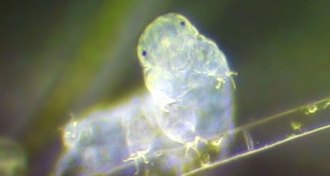 Genetics
GeneticsWater bears are genetic mash-ups
Drying out may help tardigrades soak up new DNA, which in turn aids the water bears in withstanding stress.
-
 Life
LifeDNA doubled in conifer ancestors
The genomes of conifers — pine, cypress and yew trees — doubled twice in the distant past.
-
 Neuroscience
NeuroscienceTaste is all in your head
By targeting certain nerve cells in a mouse’s brain, scientists made plain water turn bitter or sweet.
-
 Physics
PhysicsFinal chapter published in decades-long Gravity Probe B project
It took more than 50 years, but an experiment testing general relativity has finally come to a close.
By Andrew Grant -
 Microbes
MicrobesGut microbes signal when dinner is done
Helpful E. coli bacteria that live in the guts of animals produce proteins that can decrease an animal’s appetite only 20 minutes after receiving nutrients
-
 Earth
EarthDon’t flip out: Earth’s magnetic poles aren’t about to switch
Earth’s waning magnetic field is returning to its long-term average, not heading toward a catastrophic magnetic reversal, new lava analysis suggests.
-
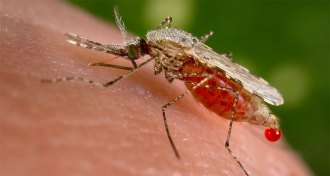 Genetics
GeneticsMosquitoes engineered to zap ability to carry malaria
Researchers have created a gene drive that prevents mosquitoes from carrying malaria.
-
 Planetary Science
Planetary SciencePhobos to create ring around the Red Planet
Mars’ moon Phobos will shatter and create a temporary ring around Mars 20 million to 40 million years from now.
-
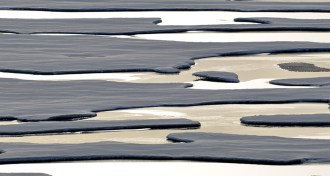 Climate
ClimateThinning ice leads to winter warming in the Arctic
Thinning Arctic sea ice could boost heat-trapping water vapor in the air during autumn and winter, leading to more ice loss.
-
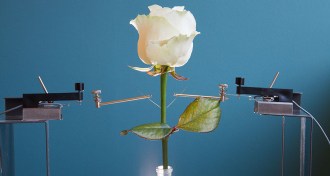 Tech
TechRoses rigged with electrical circuits
Bioelectric molecules can form wires and conduct electricity in cut roses, researchers find.
-
 Life
LifeMany Amazon trees endangered
Large numbers of Amazon tree species are threatened by deforestation.
-
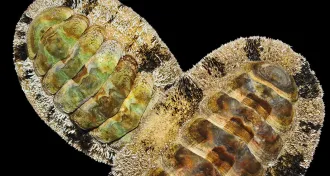 Animals
AnimalsHow to see with eyes made of rock
Tiny mollusk eyes in chiton armor can pick up rough images.
By Susan Milius